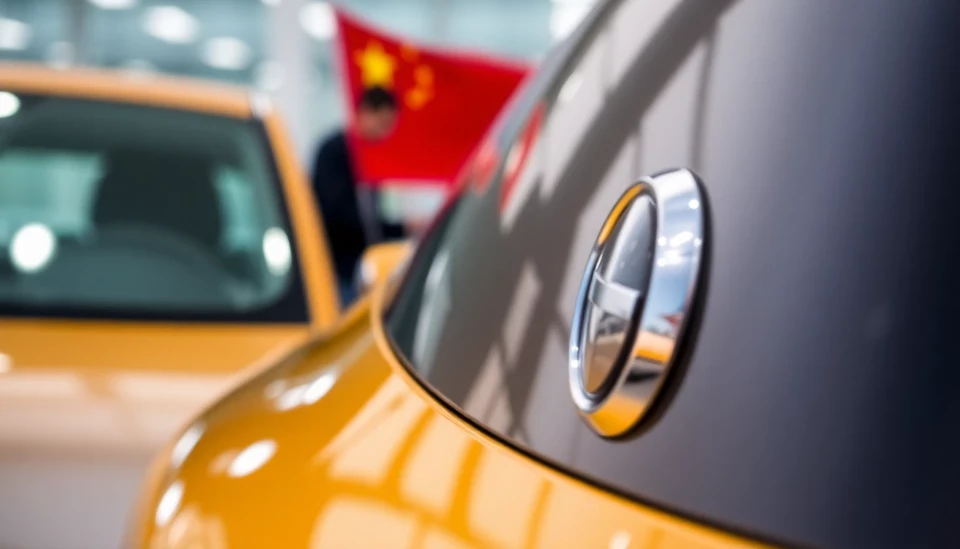
In a significant move reflecting the escalating trade tensions between China and Europe, Chinese authorities have urged domestic car manufacturers to reconsider their expansion strategies in Europe. This request comes as both parties navigate a complex landscape of tariffs and trade policies that could shape the future of automotive trade.
The Chinese government is reportedly concerned that further investments in European production facilities and the launch of new models could exacerbate existing trade disputes. With the European Union (EU) actively contemplating tariffs on electric vehicles (EVs) exported from China, Beijing's intervention aims to mitigate potential fallout from these discussions.
Recent reports indicate that the Chinese Ministry of Industry and Information Technology has advised key automakers, including the likes of BYD and NIO, to reassess their European growth plans. This recommendation is not just a formality — it is a strategic directive that underscores the sensitivity of the current geopolitical climate surrounding trade.
Industry insiders suggest that the move is a response to the EU's growing scrutiny of Chinese automotive imports, particularly in light of accusations that these vehicles are benefiting from unfair subsidization. The EU's consideration of imposing duties on Chinese electric cars could have profound implications for the prices and competitiveness of these vehicles in one of the world's most lucrative auto markets.
In reaction to these developments, car manufacturers in China are currently weighing their options. Some are contemplating a shift in focus towards domestic markets or re-evaluating their pricing strategies in Europe to offset potential tariff impacts. The situation is fluid, and automakers are keenly aware that any delay in expansion could cost them valuable market share and growth opportunities within Europe.
Moreover, this scenario is emblematic of broader economic patterns where global supply chains are being disrupted due to rising tensions between major economies. The automotive sector, a cornerstone of both China's and the EU's economies, stands at the forefront of this pivotal moment. As both regions aim to bolster their positions in the rapidly evolving EV market, the implications of these tariffs could resonate far beyond just vehicles, influencing everything from technology transfer to bilateral economic relations.
The urgency of the situation prompts significant questions regarding the future of international trade in the automotive sector. Will this moment of caution lead to a more long-term pivot in strategies, or will car manufacturers find pathways to continue their European ambitions despite the hurdles presented? Only time will tell as these negotiations evolve and both sides strive to reach a resolution that balances competition with collaboration.
As the situation develops, stakeholders on both sides of the trade will be watching closely to see how this affects not only car manufacturers but also consumers who may ultimately bear the costs of escalating tariffs through higher prices.
In summary, China's call for automakers to pause European expansion encapsulates the fraught dynamics of global trade today. The automotive industry, which serves as a barometer for international relations, now faces an uncertain road ahead as it navigates the intersection of commerce, geopolitics, and innovation.
#China #Automakers #EuropeanExpansion #Tariffs #ElectricVehicles #TradeTensions #AutomotiveIndustry
Author: Daniel Foster




